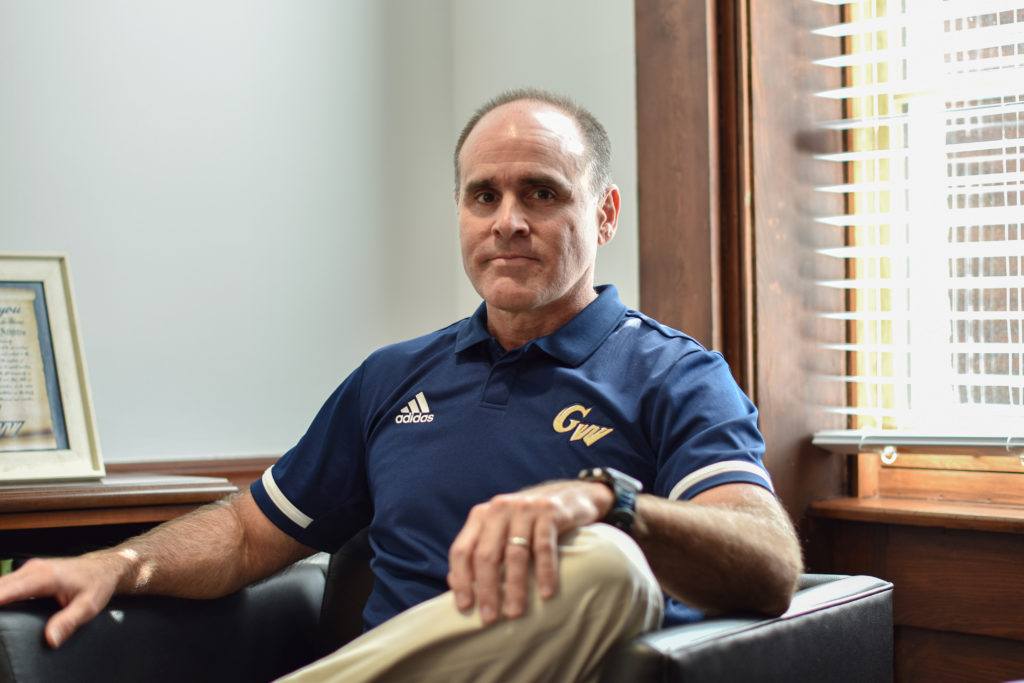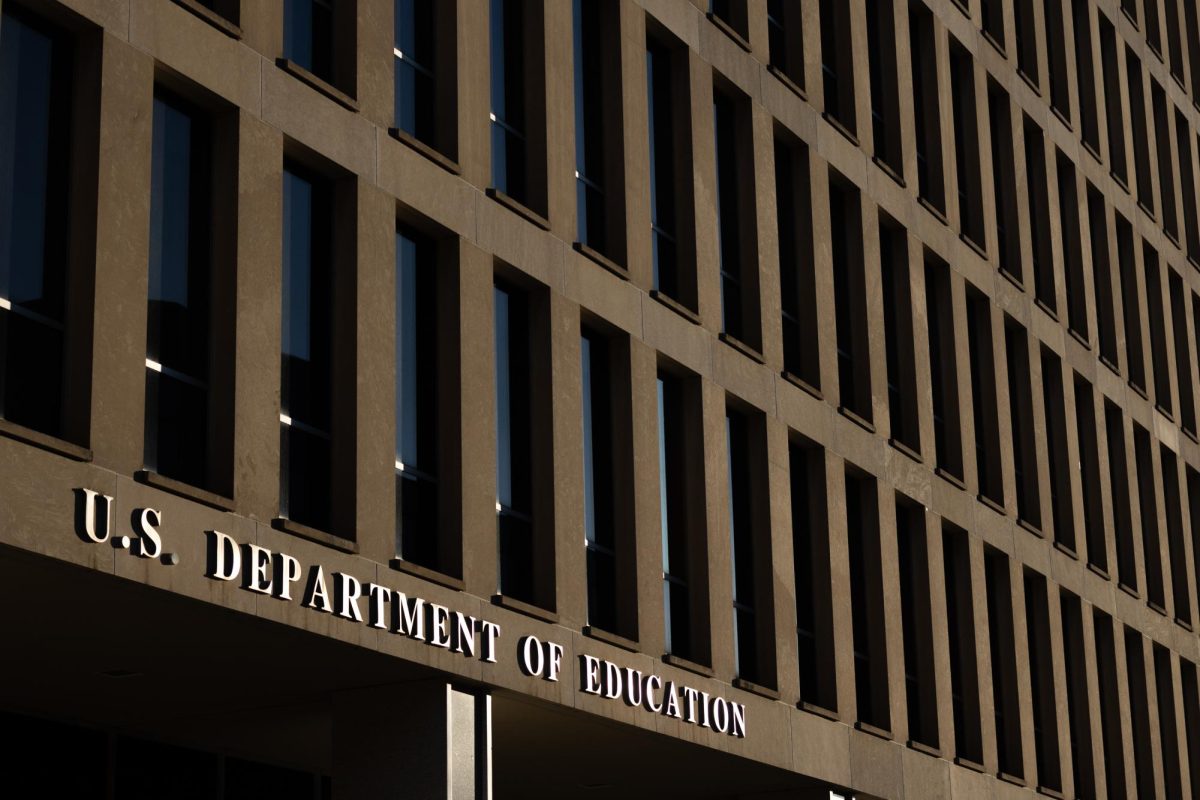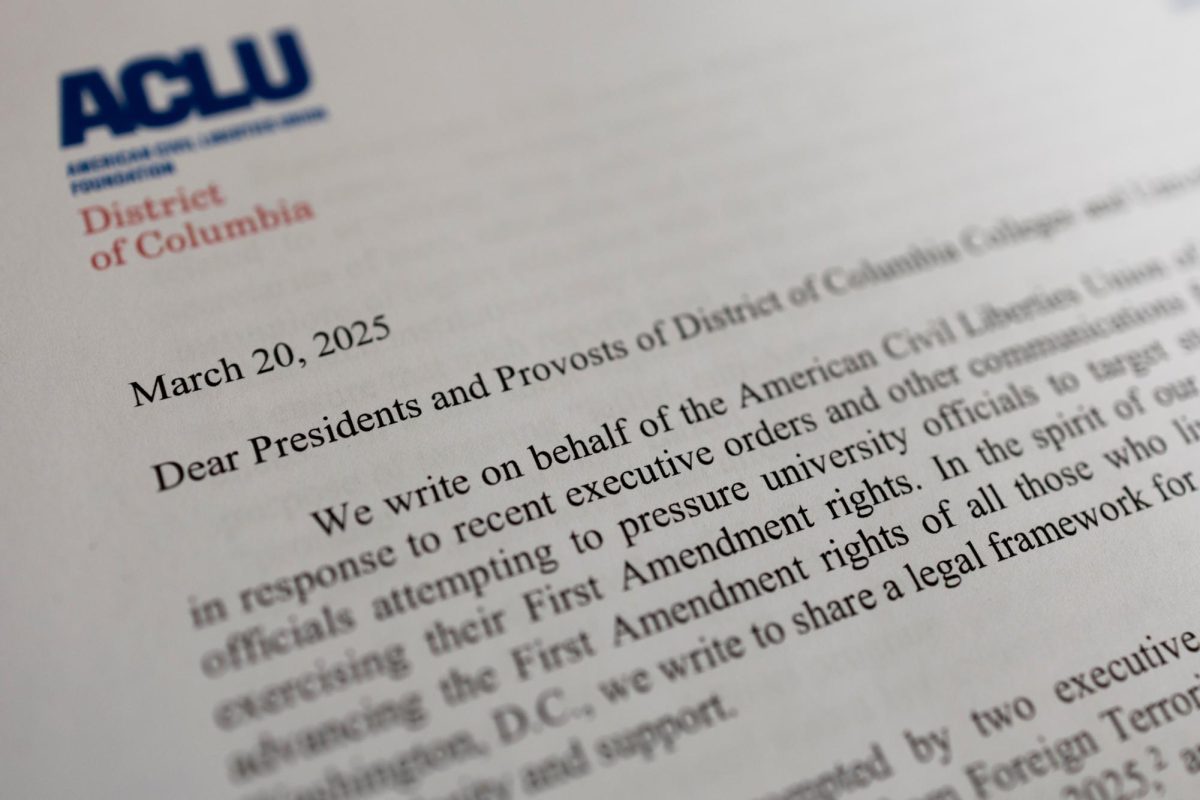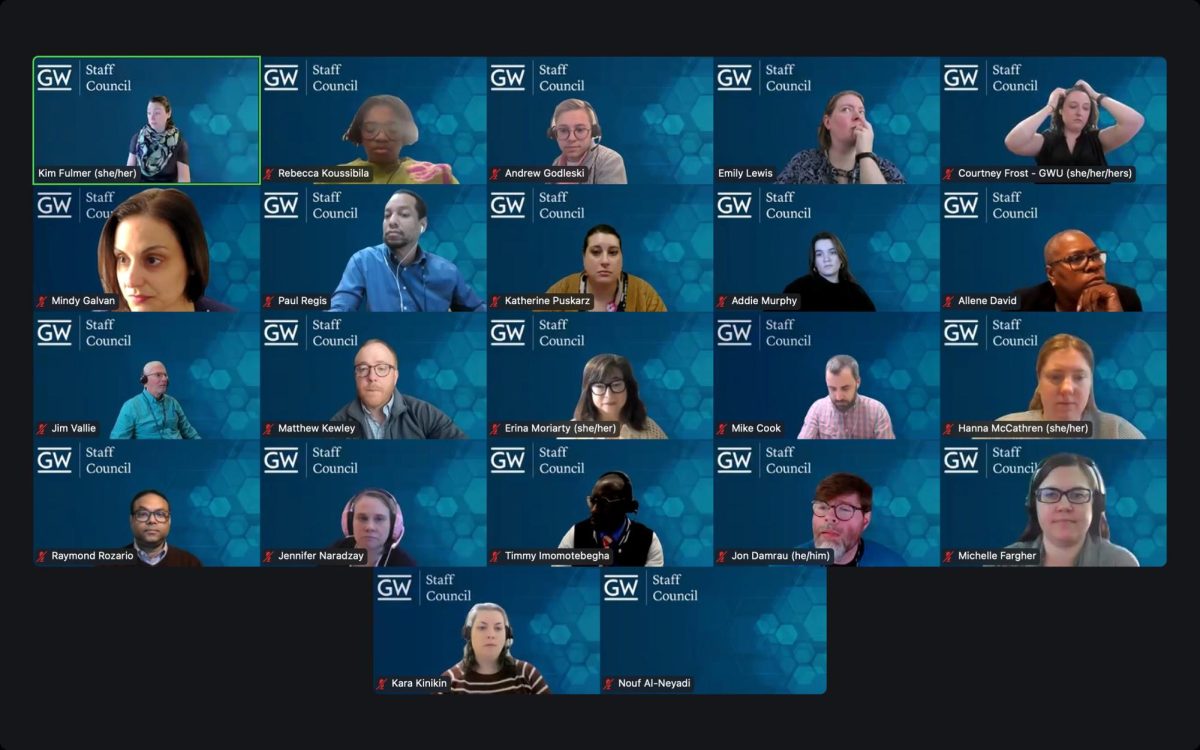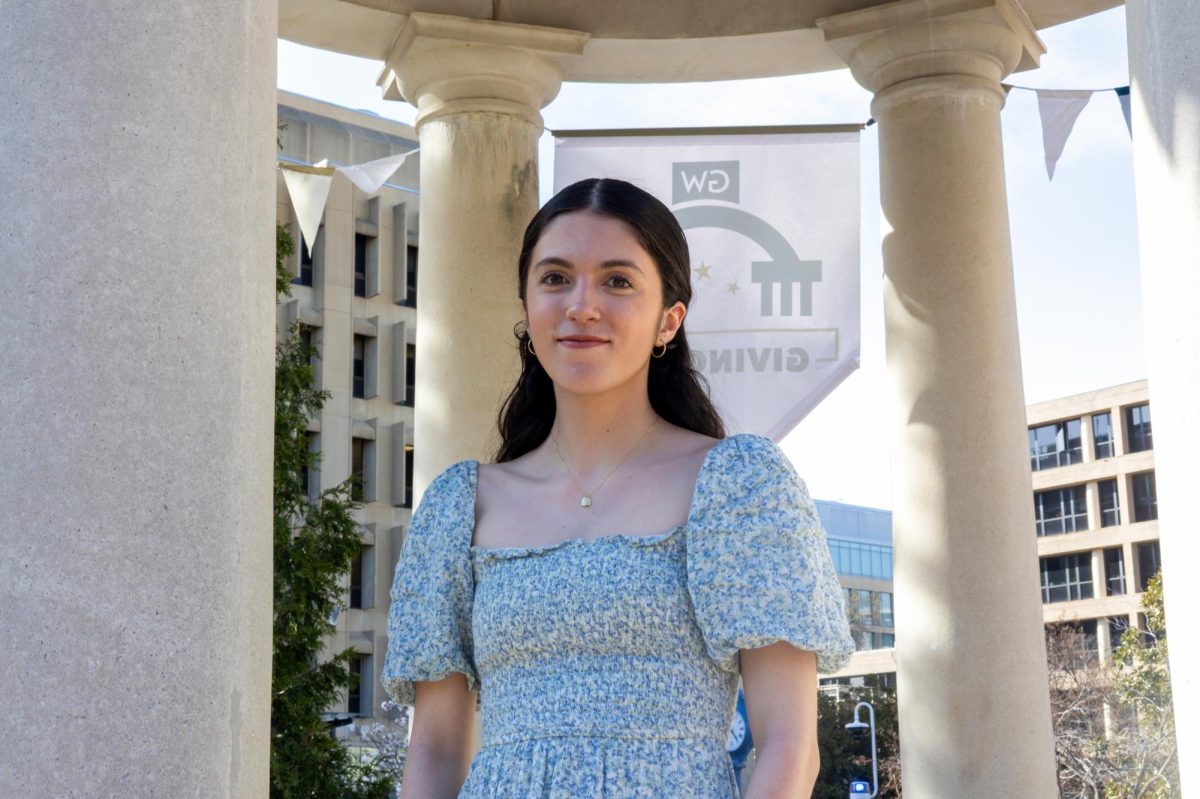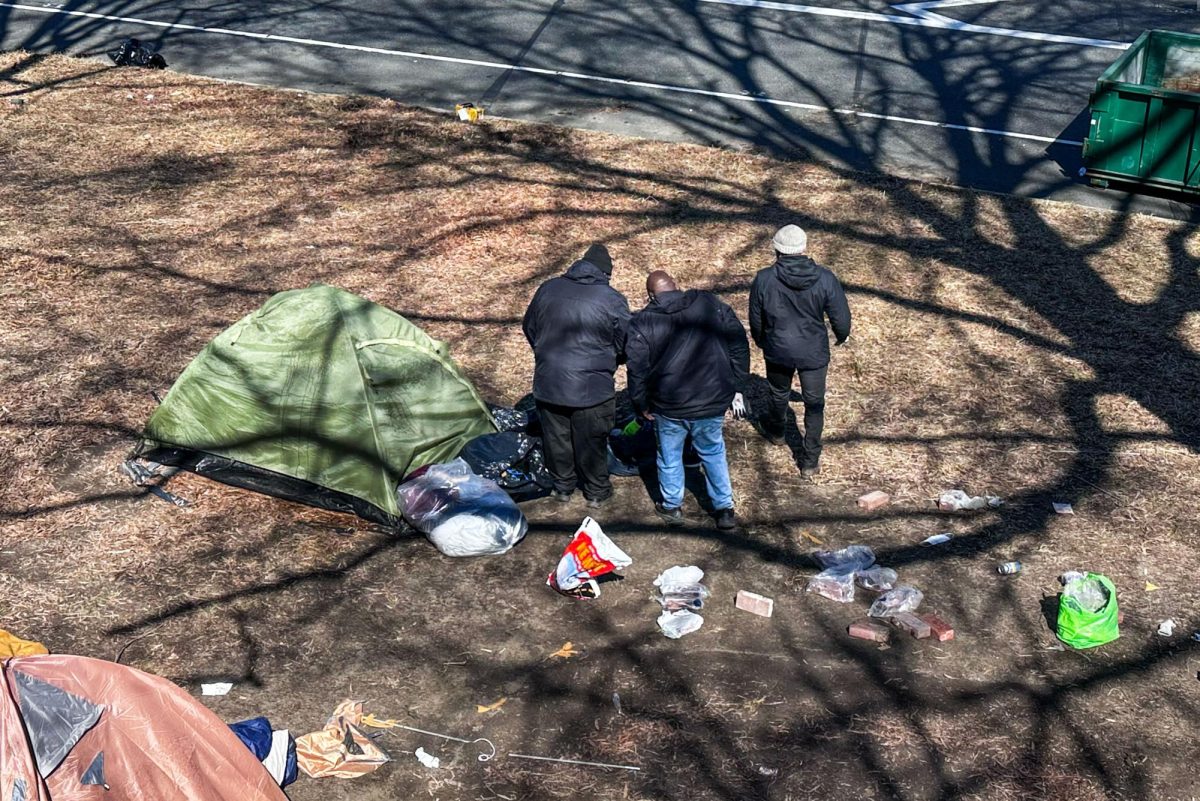Officials are pausing University President Thomas LeBlanc’s strategic initiative to improve institutional culture and have ended GW’s partnership with the Disney Institute.
Soon after arriving at GW in August 2017, LeBlanc identified improving institutional culture as one of his five top priorities as University president. University spokesperson Crystal Nosal said administrators decided to end the Disney partnership and pause the initiative as a result of the COVID-19 pandemic, but the “service priorities” of safety and care developed through the initiative continue to guide officials’ decision-making.
Officials also began “preliminary” discussions with Gallup earlier this year to continue surveying employees, but Nosal said the discussions are halted due to the pandemic.
LeBlanc began taking steps to improve employee morale in 2018 by giving employees the full week off between Christmas and New Years Day and revamping employee orientation.
“When President LeBlanc first came to GW, he heard repeatedly about the need to address what many in our community viewed as a transactional culture that was challenging to navigate for our students, faculty and staff, and that negatively affected the student experience,” Nosal said in an email. “Addressing these challenges was the objective of the culture initiative.”
She declined to say when the partnership concluded.
Administrators started meeting regularly in April 2018 to define the current culture of GW and find short-term and long-term improvements.
Almost six months later, officials partnered with the Disney Institute – a professional development company under the umbrella of the Disney corporation – to examine GW’s employee culture through a survey to faculty and staff and focus-group interviews. The initial partnership’s cost was estimated at roughly $300,000, which LeBlanc said demonstrated the importance of the issue to him.
“I would start with the question, ‘do we believe at GW, culture’s an important issue?’” LeBlanc said when officials announced the partnership. “Well, everybody I’ve talked to said yes. Students said yes. Staff said yes. Faculty said yes. Alumni said yes. The trustees said yes.”
But after the employee survey’s release, some began raising concerns about its effectiveness, adding that the survey was “generic.”
In January 2019, LeBlanc said the nearly 3,000 employee responses to the Disney assessment enabled administrators to pinpoint four top culture issues: inconsistent leadership, inefficient communication, poor service culture and lack of employee appreciation.
The next month, officials announced they would extend GW’s contract with the Disney Institute for their guidance in mending the four top issues identified through the assessment.
Administrators subsequently created four cross-functional work teams, which each consisted of 10 faculty, staff and administrators, to manage the issue areas. Officials said the work teams made “wide-ranging” recommendations, including immediate changes like free employee access to the Lerner Health and Wellness Center during summer 2019 to long-term efforts like an internal portal for faculty and staff.
As the groups were making recommendations, administrators finalized a new culture “framework,” consisting of a common purpose statement, seven University-wide values and three ranked-service priorities: safety, care and efficiency. Officials held in-person training sessions open to all faculty and staff last fall to introduce the framework.
Officials asked employees in managerial roles to attend a training in September of 2019 delivered by the Disney Institute, while all other employees were encouraged to attend a training later that fall facilitated by a team of 25 faculty and staff, known as Our GW Service Ambassadors.
The trainings were met with mixed reviews from faculty, some of whom had previously expressed frustrations with the partnership, saying it was conceived as if GW was a corporation rather than a university. Officials have stressed that GW leadership is leading the culture initiative, and the Disney Institute has only provided guidance and support.
“It is important to note that while the University utilized guidance from the Disney Institute, the culture initiative was a GW initiative led by a leadership team of faculty and staff,” said Nosal, the University spokesperson.
But some faculty began escalating frustrations after the trainings began. The Faculty Assembly – a body comprising all full-time faculty members – approved a petition in October requesting four faculty committees investigate the costs of the Disney partnership.
The Faculty Senate subsequently formed a special committee to create a report addressing the petition. LeBlanc declined to provide the cost of the partnership, citing contractual obligations related to confidentiality with the Disney Institute.
The total cost of the partnership between the Disney Institute and GW remains unknown. Nosal declined to say how much GW has paid the Disney Institute.
The move to end the Disney partnership comes as hundreds of faculty, staff and students have signed petitions and statements in recent weeks calling for LeBlanc’s resignation, with many citing the partnership in their rationale.


